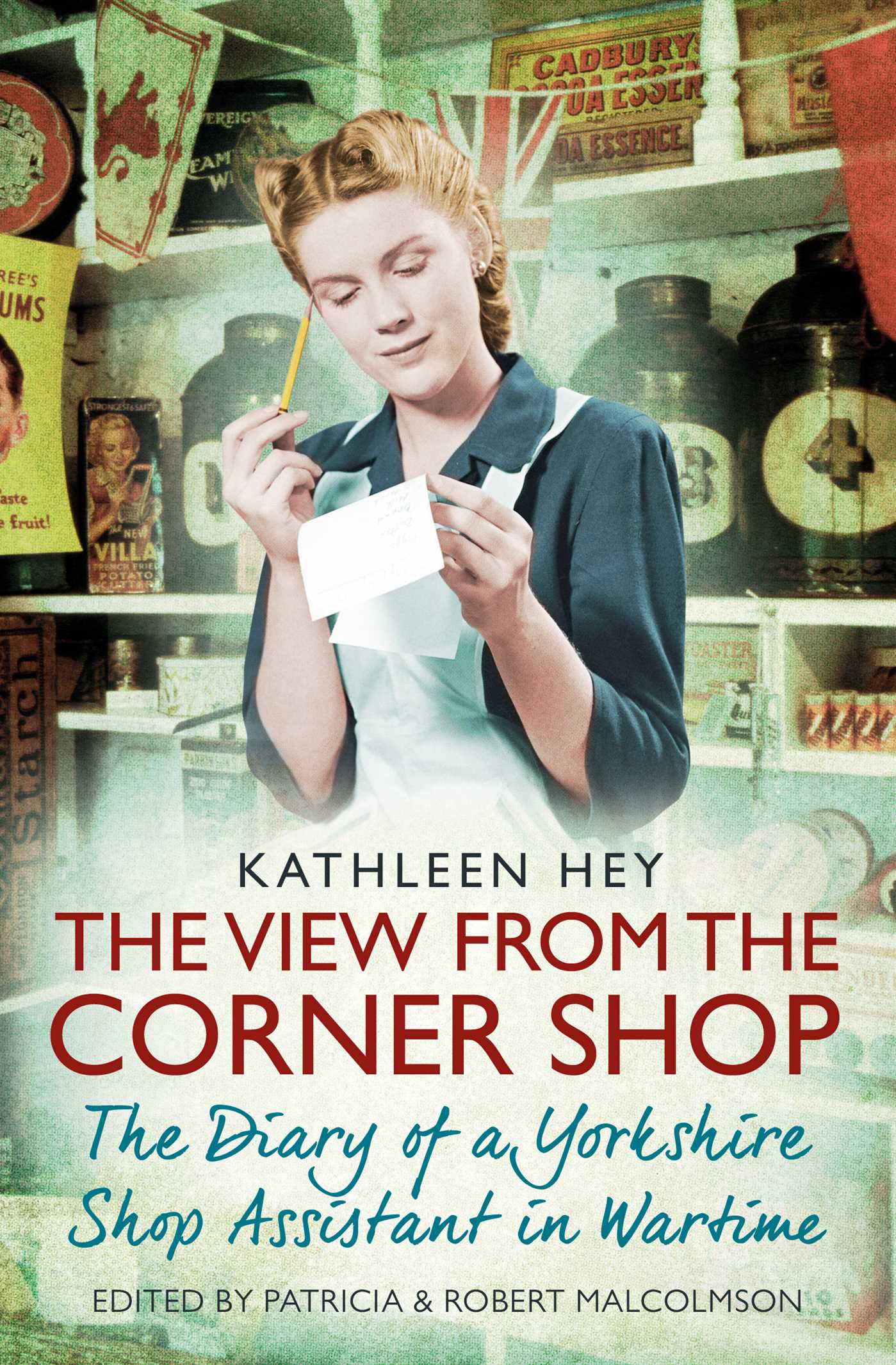Some time ago I bought two books, both of which were part of the British Government’s Mass Observation Project. One was “The Diaries of Nella Last, Writing in War and Peace“. The second was Kathleen Hey’s “The View from the Corner Shop – The Diary of a Yorkshire Shop Assistant in Wartime”, which I confess appealed most, simply because I shared much of the same experience. I have just re-read it, as it has such relevance in the current Coronavirus shopping situation.
My reading has given rise to many memories, and above all the thought – “At least now we are not being bombed!”
When I was twelve and my parents separated, my mother bought a similar shop, and all my spare time for some years was spent helping in various aspects of the business, so I can vouch for the type of incidents described in her diary.
How well I recall counting the “points” clipped from the ration-books, which all had to be accounted for and delivered to the local Food Office in order to purchase more stock.
The grumbling customers. The green ration books for Under Fives who were the only ones entitled to the very rare allocation of oranges.
And NO – we never had a secret Onion Orgy either!
The time too, when a blow-fly got at the bacon ration for all our customers, (we had a red bacon slicer) but the maggots were all washed off with vinegar and water in the bakehouse behind the shop, and it was sliced and sold out to unsuspecting customers. There was just no alternative. It was the ration for all our Registered Customers.
- Title: The View From the Corner Shop: The Diary of a Yorkshire Shop Assistant in Wartime
- Author: Kathleen Hey
- Published: 2016 by Simon & Schuster UK
- Pages: Kindle Edition, 259 pages.
Kathleen Hey spent the war years helping her sister and brother-in-law run a grocery shop in the Yorkshire town of Dewsbury. From July 1941 to July 1946 she kept a diary for the Mass-Observation project, recording the thoughts and concerns of the people who used the shop. What makes Kathleen’s account such a vivid and compelling read is the immediacy of her writing. People were pulling together on the surface (‘Bert has painted the V-sign on the shop door…’, she writes) but there are plenty of tensions underneath. The shortage of food and the extreme difficulty of obtaining it is a constant thread, which dominates conversation in the town, more so even than the danger of bombardment and the war itself.
Sometimes events take a comic turn. A lack of onions provokes outrage among her customers, and Kathleen writes, ‘I believe they think we have secret onion orgies at night and use them all up.’ The Brooke Bond tea rep complains that tea need not be rationed at all if supply ships were not filled with ‘useless goods’ such as Corn Flakes, and there is a long-running saga about the non-arrival of Smedley’s peas.
Among the chorus of voices she brings us, Kathleen herself shines through as a strong and engaging woman who refuses to give in to doubts or misery and who maintains her keen sense of humour even under the most trying conditions. A vibrant addition to our records of the Second World War, the power of her diary lies in its juxtaposition of the every day and the extraordinary, the homely and the universal, small-town life and the wartime upheavals of a nation.
Rating details · 203 ratings · 25 reviews
If you enjoyed this BFD article please consider sharing it with your friends.

